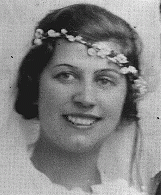You searched for: www.highwincasino.com/recommandation-and-reviews-of-fc-slot-free-play-and-demo/
<< Previous | Displaying results 276-300 of 480 for "www.highwincasino.com/recommandation-and-reviews-of-fc-slot-free-play-and-demo/" | Next >>
-
The Evian Conference
ArticleAt the July 1938 Evian Conference, delegates from nations and organizations discussed the issue of Jewish refugees fleeing persecution in Nazi Germany. Learn more
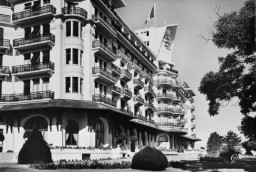
-
Nuremberg Trials
ArticleTrials of top surviving German leaders for Nazi Germany’s crimes began in Nuremberg after World War II. Read about the Nuremberg trials.
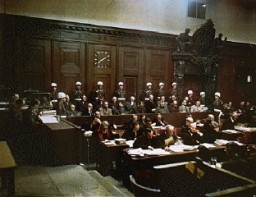
-
Jewish Community of Kalisz: Youth, Culture, Religion
ArticleKalisz had a vibrant Jewish community between WWI and WWII. Learn about its youth movements, schools, cultural life, sports, and religious life.
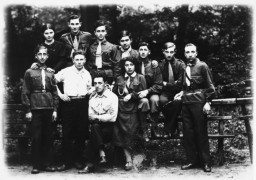
-
The Movement to Boycott the Berlin Olympics of 1936
ArticleSoon after Hitler came to power, debates began outside Germany about taking part in Olympics hosted by the Nazi regime. Learn more about calls to boycott the Games.
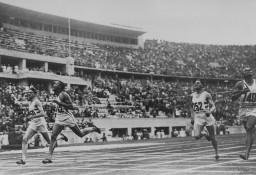
-
Erich Ludendorff
ArticleGerman General Erich Ludendorff was a key proponent of the fictitious “Stab-in-the-Back” myth which blamed Jews and others for Germany’s defeat in WWI.
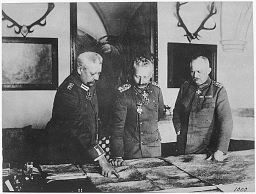
-
The Role of the German Police
ArticleTo implement their policies, the Nazis had help from individuals across Europe, including professionals in many fields. Learn about the role of the German police.
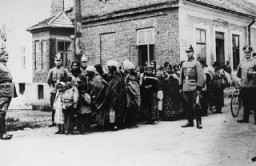
-
Mein Kampf
ArticleAdolf Hitler's Mein Kampf (My Struggle) is the best known and most popular Nazi text ever published with over 12 million copies sold from 1925 to 1945.
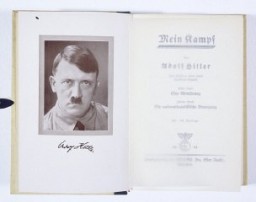
-
Topf and Sons: An “Ordinary Company”
ArticleMany German businesses were involved in the policies of the Third Reich. Learn about Topf and Sons, which sold ovens to the SS for major concentration camps in Germany.
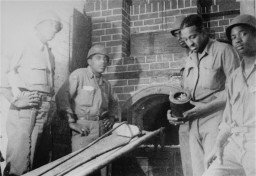
-
Théophile Larue
PhotoFrench policeman Théophile Larue, who warned his Jewish neighbors of an upcoming roundup.
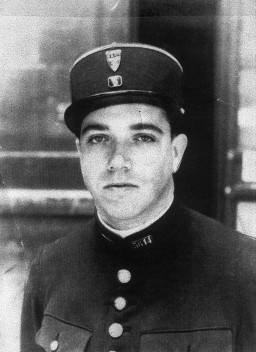
-
Operation Harvest Festival
Timeline EventNovember 3, 1943. On this date, SS and police units implemented "Operation Harvest Festival" (also known as Aktion Erntefest).

-
Warsaw Polish Uprising
Timeline EventAugust 1, 1944. On this date, the Warsaw uprising began with the Polish Home Army rising against the Nazis in an attempt to liberate Warsaw.
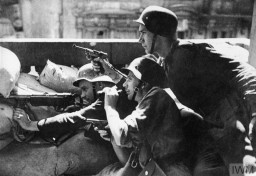
-
Book Burning
Timeline EventMay 10, 1933. On this date, books deemed "un-German" are publicly burned throughout Germany.
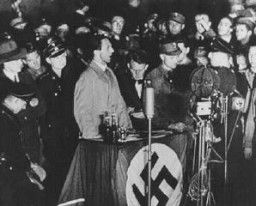
-
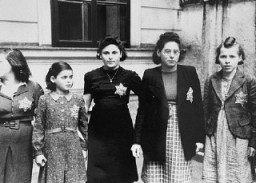
-
Protocols of the Elders of Zion
ArticleThe Protocols of the Elders of Zion is the most widely distributed antisemitic publication of modern times. Although repeatedly discredited, it continues to circulate.
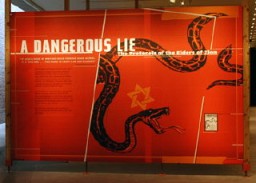
-
Wilhelm Keitel: Biography
ArticleField Marshal Wilhelm Keitel was commander of all German armed forces during World War II. Learn about his military career and postwar trial.
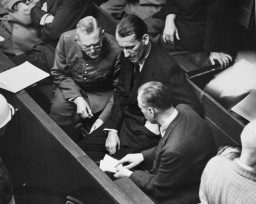
-
Pinchas Galperin
ID CardPinchas was one of 16 children born to a Jewish family. Only nine of the Galperin children lived to adulthood. Pinchas' father worked as a typesetter for a Jewish newspaper and his mother ran a small grocery store. After World War I, Pinchas married Sara Bernstein and the couple moved to Siauliai, Lithuania, where they raised three children. 1933-39: Pinchas and Sara owned and ran a dairy store where they sold milk, butter and cheese that they bought from local farmers. Every morning they would rise early…
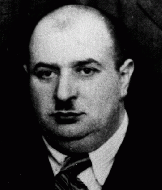
-
Adolphe Arnold
ID CardAdolphe was born to Catholic parents in Alsace when it was under German rule. He was orphaned at age 12, and was raised by his uncle who sent him to an art school in Mulhouse, where he specialized in design. He married in the village of Husseren-Wesserling in the southern part of Alsace, and in 1930 the couple had a baby daughter. In 1933 the Arnolds moved to the nearby city of Mulhouse. 1933-39: Adolphe worked in Mulhouse as an art consultant for one of France's biggest printing factories. When he wasn't…
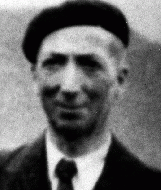
-
Johanna (Hanne) Hirsch
ID CardHanne was born to a Jewish family in the German city of Karlsruhe. Her father, Max, was a photographer. When he died in 1925, Hanne's mother, Ella, continued to maintain his studio. In 1930 Hanne began public school. 1933-39: In April 1933 Hanne's family's studio, like the other Jewish businesses in Karlsruhe, was plastered with signs during the anti-Jewish boycott: "Don't buy from Jews." At school, a classmate made Hanne so furious with her taunts that she ripped her sweater. After the November 1938…
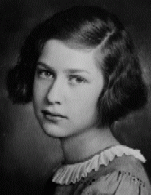
-
Siegfried Wohlfarth
ID CardThe elder of two sons of religious German-Jewish parents, Siegfried grew up in the city of Frankfurt. Upon completing his education, he became a certified public accountant in Frankfurt. In his free time he worked as a freelance music critic. While on a vacation in 1932 on the North Sea island of Norderney, he met Herta Katz, a young woman with whom he quickly fell in love. 1933-39: The Nazis had fired Siegfried from his government job because he was Jewish. Although his mother opposed the match,…
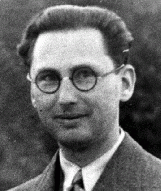
-
Emma Arnold
ID CardEmma was born to Catholic parents in Strasbourg, the capital of Alsace-Lorraine. Her father died when she was 8 years old, and Emma grew up on her mother's mountain farm. At 14 she became a weaver. Later, she married and moved with her husband to the Alsatian town of Husseren-Wesserling. In 1930 she gave birth to a daughter. In 1933 the Arnolds moved to the nearby city of Mulhouse. 1933-39: Emma and her family decided to become Jehovah's Witnesses. Emma felt she was blessed with a loving husband and…
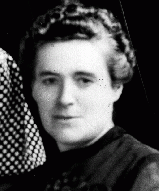
-
Channah Mazansky-Zaidel
ID CardChannah was one of six children born to a Jewish family. In 1914, a year after her father died, the family fled during World War I to Russia. After the war they returned to Lithuania and settled in the village of Pampenai in a house owned by Channah's grandparents. When Channah's three oldest siblings moved to South Africa in the 1920s, Channah helped support the family by sewing. 1933-39: Channah was working as a seamstress in Pampenai when, in the mid 1930s, she met and married Channoch Zaidel. The…
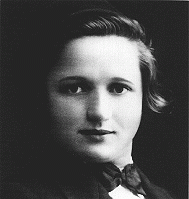
-
Sara Galperin
ID CardSara, born Sara Bernstein, was one of six children in a Jewish family in the Lithuanian village of Karchai. Her father was a farmer. Sara attended secondary school in Jonava and in 1920 she moved to Siauliai, where she met and married Pinchas Galperin. The couple owned and ran a dairy store, selling butter, milk and cheese. They had three children--two sons and a daughter. 1933-39: In addition to running the family store and rising early every morning to buy dairy products from the local farmers, Sara was…
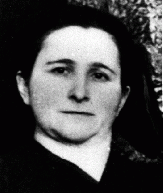
-
Masza Tenenbaum
ID CardThe youngest of three children, Masza was born to Jewish parents living 35 miles east of Warsaw in the small predominantly Jewish town of Kaluszyn. Her father owned a shop where he sold cosmetics and non-prescription medicines. Masza was close friends with a group of Jewish teenagers who went to the same public school and who spent much of their free time and vacations together. 1933-39: Majlich, Sara, and the rest of Masza's group have always liked discussing politics as they strolled down the main…
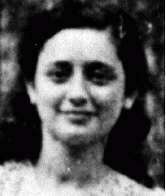
-
Welwel Wainkranc
ID CardThe third of five brothers, Welwel was born to Jewish parents who lived 35 miles east of Warsaw in the small predominantly Jewish town of Kaluszyn. His father was a cattle merchant who purchased cows and sold the meat to butchers in the Warsaw region. Welwel spent most of his free time with a group of Jewish friends who lived in his neighborhood and who attended the same public school. 1933-39: Every summer evening Welwel, Abram Kisielnicki, and some other pals, like to stroll along Kaluszyn's main…
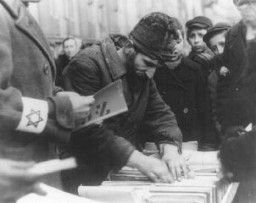
-
Erzsebet Markovics Katz
ID CardErzsebet was born to Jewish parents living in a town on the Bodrog River in northeastern Hungary. Sarospatak was a picturesque town with a ruined medieval fortress, the Windischgratz castle, and many wineries, flour mills, and brickworks. Erzsebet's father was a locksmith and sheet-metal worker. 1933-39: Erzsebet has married Jozsef Katz. It was a lovely, formal wedding. Jozsef comes from a large Jewish family. He's a joiner by trade and was working in Sarospatak when they met. Now they have moved here to…
